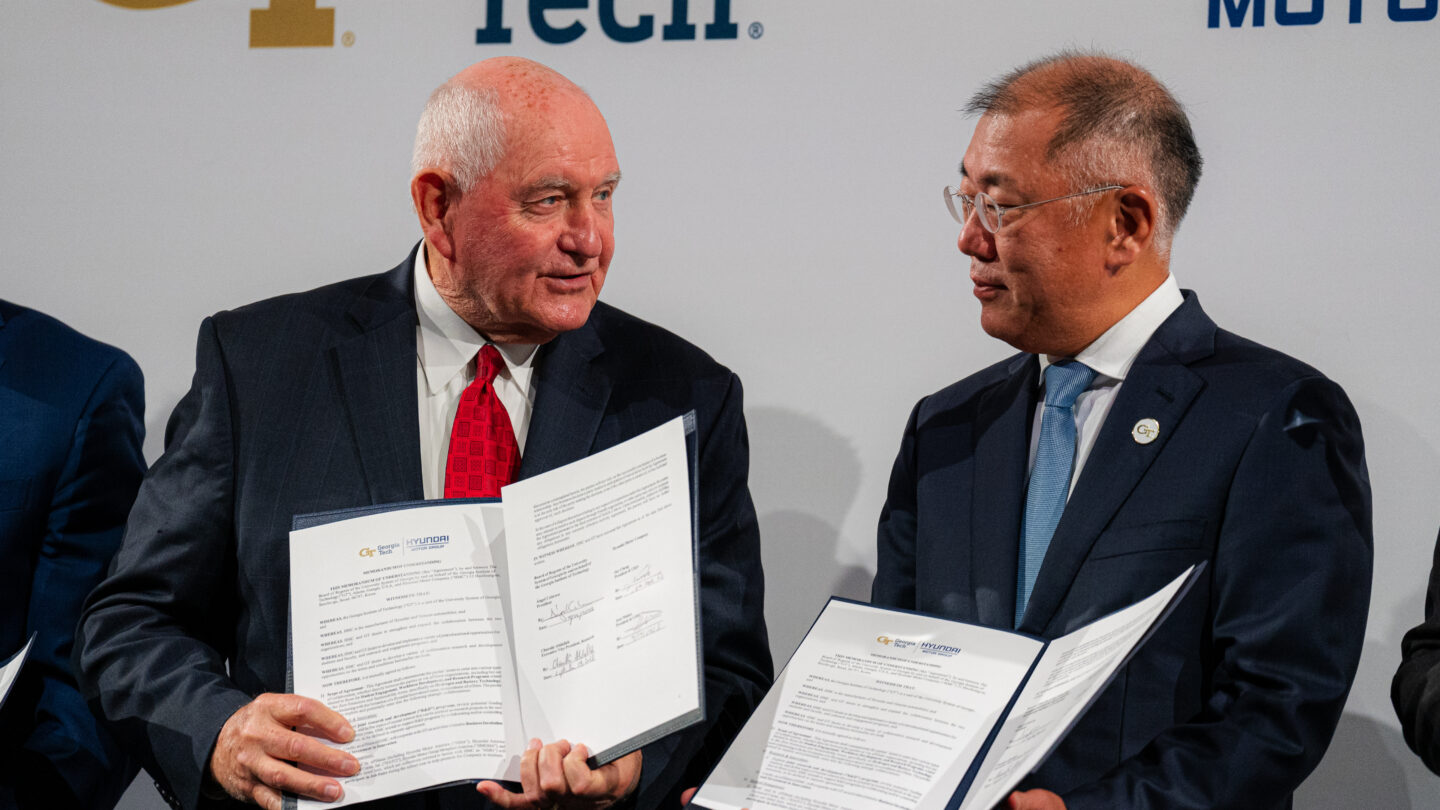The Hyundai Motor Company is partnering with Georgia Tech to collaborate on EV fuel cell technology, with the two organizations signing an agreement Monday to collaborate on research and applications to expand EV development.
The partnership aims to target EV and hydrogen research, support workforce development and work on sustainability for Hyundai’s EV factory near the Georgia coast and a battery plant in Bartow County.
José Muñoz, President & CEO at Hyundai Motor America, says that this partnership aims to build up the hydrogen economy in the state.
“The fuel cell EVs based off of hydrogen are the best technology we see for a heavy-duty, and then a very long range,” Muñoz said. “Georgia Tech is very advanced in this field.”
The South Korean automaker has made significant investments in Georgia, including a $7.6 billion EV manufacturing plant and battery factory near Savannah that could bring thousands of jobs to the area.









